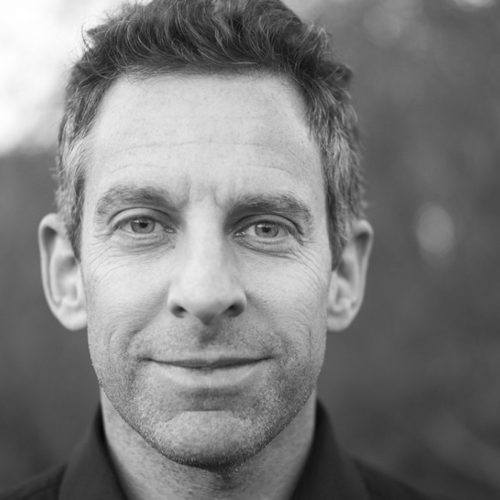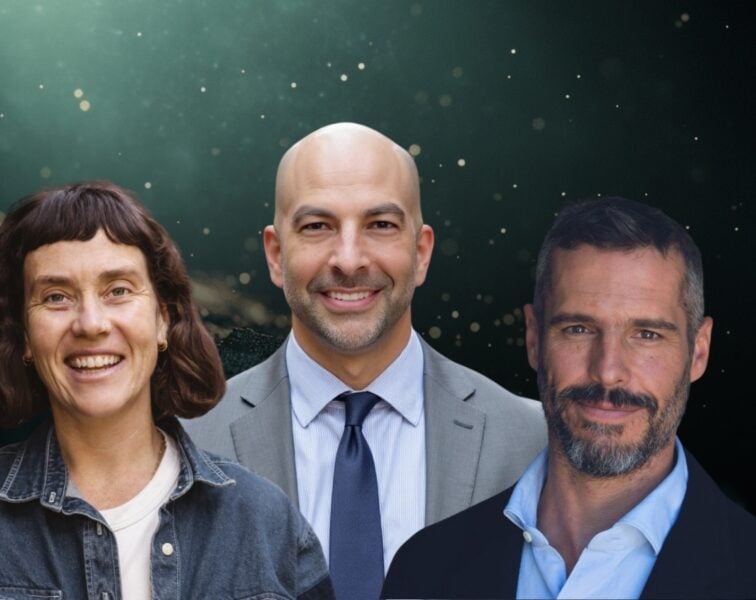Check out more content with Sam Harris:
- (December 20, 2018) Sam Harris, Ph.D.: The transformative power of mindfulness
- (March 24, 2020) Sam Harris, Ph.D.: COVID-19—Comprehending the crisis and managing our emotions
In this episode, Sam Harris, neuroscientist, author, and host of the Waking Up Podcast, walks us through the profound, yet practical, ways that meditation can transform our lives. Additionally, he helps to define the types of meditation and clarifies potential misconceptions with terms like happiness, pain, and suffering.
Want more content like this? Check out our interviews with Kristin Neff on the power of self-compassion and Esther Perel on the effects of trauma.
Subscribe on: APPLE PODCASTS | RSS | GOOGLE | OVERCAST | STITCHER
We discuss:
- The transformative moment that led to Peter reaching out to Sam [3:45];
- Comparing the two broad types of meditation, and Peter’s favorite meditation apps [7:45];
- The pleasure of a concentrated mind, meditating with pain, and the difference between pain and suffering [13:15];
- What it means to be happy, and how to break out of our default state [23:15];
- The disease of distraction, why humans suffer, the limitation of happiness, and letting go of anger with mindfulness [31:00];
- The challenge of learning mindfulness, the benefit of silent retreats, and Sam’s first experience in solitude as a teenager [54:15];
- Sam’s life-altering experience with MDMA [1:03:00];
- Mettā meditation a.k.a. loving-kindness, and the concept of ‘moral luck’ [1:14:00];
- Overcoming grief and dread with meditation [1:34:45];
- The wrong way to practice mindfulness, and the difference between Vipassana and Dzogchen [1:44:45];
- Sam’s commitment to never lie, honesty in politics, and Sam’s viewpoint on the Trump phenomenon [2:06:00];
- Teaching kids to be more mindful [2:18:30];
- Sam’s current book projects, the consequences of a politically correct environment, and the potential of neuroscience to cure psychopathy [2:25:30];
- How you can follow Sam’s work [2:39:00]; and
- More.
Get Peter’s expertise in your inbox 100% free.
Sign up to receive An Introductory Guide to Longevity by Peter Attia, weekly longevity-focused articles, and new podcast announcements.
Would you like access to extensive show notes and references for this podcast (and more)?
Check out this post to see an example of what the substantial show notes look like. Become a member today to get access.

Sam Harris, Ph.D.
Sam Harris is the author of five New York Times bestsellers and the host of the Waking Up Podcast. His books include The End of Faith, Letter to a Christian Nation, The Moral Landscape, Free Will, Lying, Waking Up, and Islam and the Future of Tolerance (with Maajid Nawaz). The End of Faith won the 2005 PEN Award for Nonfiction. His writing and public lectures cover a wide range of topics—neuroscience, moral philosophy, religion, meditation practice, human violence, rationality—but generally focus on how a growing understanding of ourselves and the world is changing our sense of how we should live. Harris’s work has been published in more than 20 languages and has been discussed in The New York Times, Time, Scientific American, Nature, Rolling Stone, and many other journals. He has written for The New York Times, The Los Angeles Times, The Economist, The Times (London), The Boston Globe, The Atlantic, Nature, The Annals of Neurology, and elsewhere. Sam Harris received a degree in philosophy from Stanford University and a Ph.D. in neuroscience from UCLA. For more, see his publications and lectures. [samharris.org]



